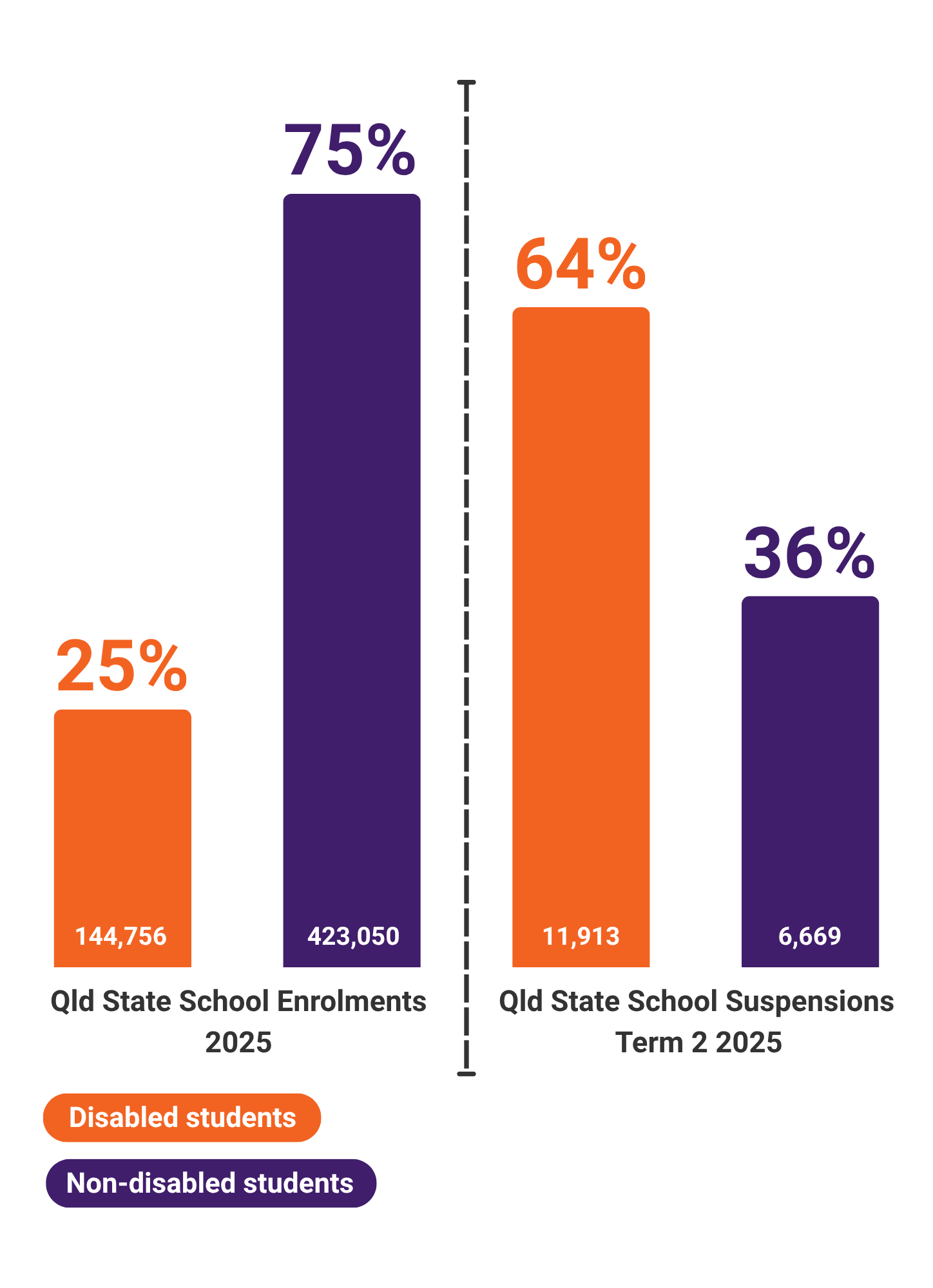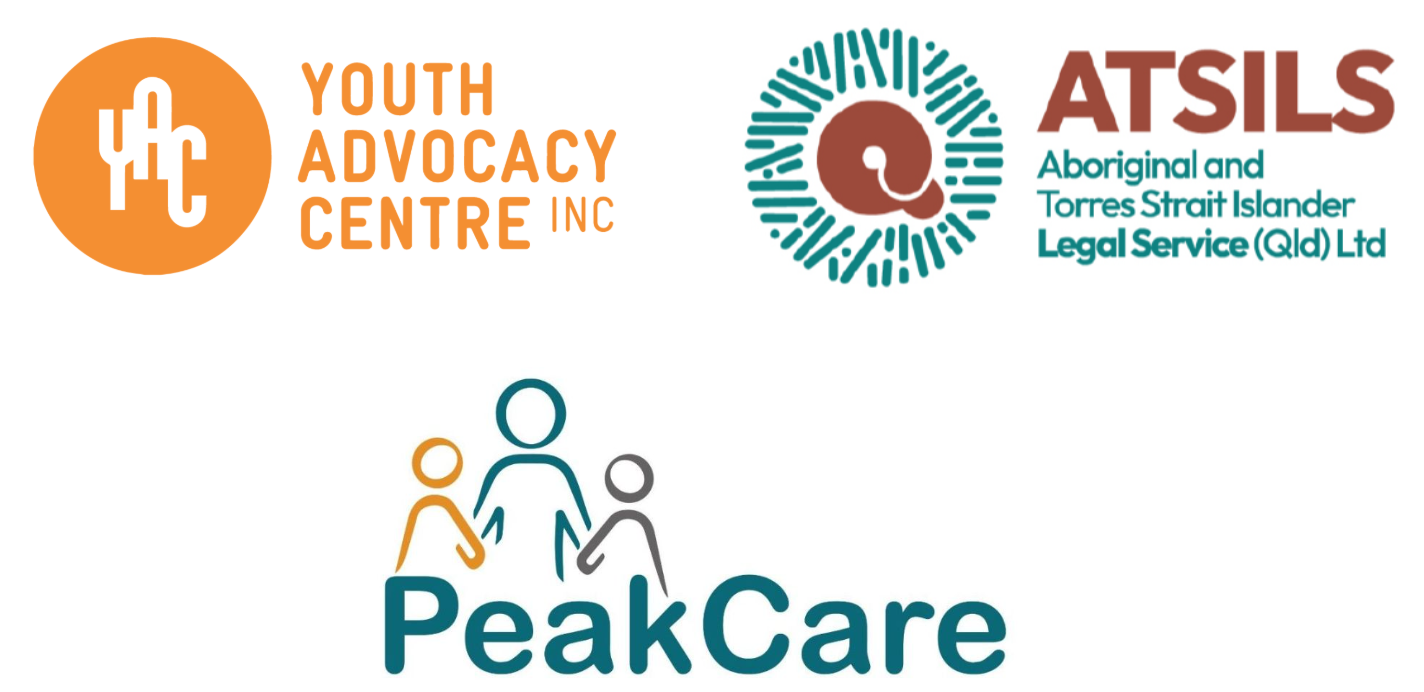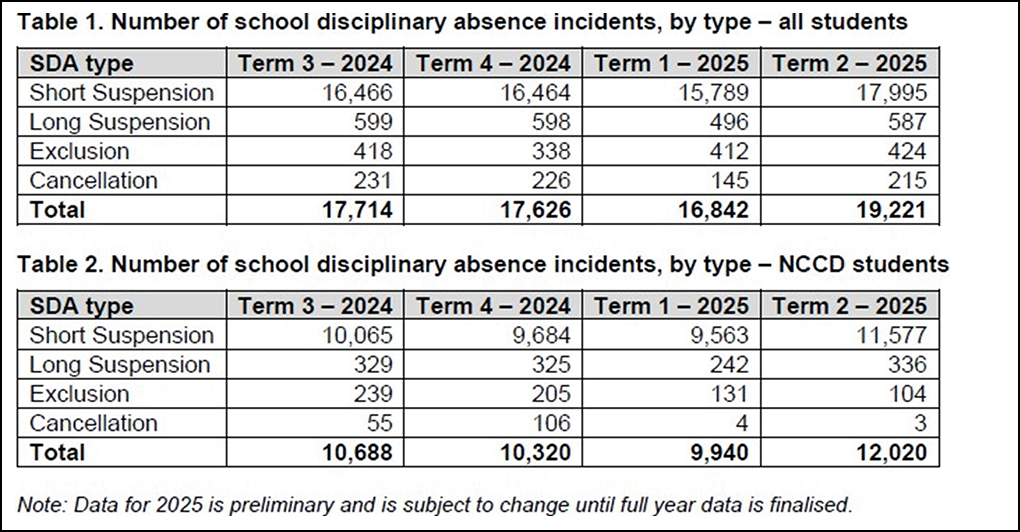Every child has a right to learn and belong in their classroom, but state data reveals that right is denied to disabled students
The data reveals a systemic failure – Queensland schools are suspending students with disability at alarming rates and it’s getting worse. Our discipline systems need input from the families most affected by them.
From existing economic cost analysis, we know that managing suspensions wastes $20 million annually, while families are losing $14 million in income. That’s money that could create inclusive classrooms across Queensland instead of funding exclusion.
Matilda Alexander, CEO of Queensland Advocacy for Inclusion says, “The Disability Royal Commission has recommended suspensions as a last resort. The Queensland Government also includes suspension as a last resort in the Principal guidelines for student discipline. But this data tells a very different story.”
Alexander reinforces “Disabled students are roughly 25% of the student cohort, but in term 2 this year, they made up 64% of suspended students in QLD – the highest it has been in the last 12 months.”

Picture this: it’s 10 am on Monday, and instead of learning alongside their friends, disabled students across QLD are sitting at home – again. Their parents are choosing between keeping their jobs and caring for suspended children. This isn’t about ‘problematic’ students – it’s about poorly resourced systems that don’t accommodate diverse learning needs.
Students with disability and their families need to be included in the policies that disproportionately impact them. These families are the experts in their own needs, yet schools suspend first and ask questions later.
When young people are pushed out of education, one broken system leads to another, with taxpayers covering between $5-10 million yearly in youth justice system expenses. We need principals in all schools to put inclusion first and suspension as an absolute last resort. All students have a right to learn.
The Disability Royal Commission was clear: suspension must become a last resort. But right now, for disabled students, it’s often the first one. We need a complete system redesign with disabled students and families leading the way —not tweaking around the edges. When schools create inclusive environments designed by and with disabled students, all students benefit from stronger learning communities, and we stop this pipeline from classroom to courtroom.
Our Federal Disability Discrimination Act (the Act) is currently under review and there is an opportunity to protect our children’s right to learn. The Act should require our education authorities to avoid the use of exclusionary discipline on students with disability. Unless it is necessary as a last resort to avert the risk of serious harm to the student, other students, or staff.
Alexander responds, “However, 64% of suspended students being those with disability, would suggest there are not enough inclusive supports in our schools to avoid this ultimatum. The question isn’t whether we can afford to change —it’s whether we can afford not to.”
Media inquiries:
Queensland Advocacy for Inclusion
Phone: 07 3844 4200
Email: qai@qai.org.au
Endorsed by the A Right to Learn campaign members

References
Data provided by the Queensland Government in response to a question on notice regarding number of School Disciplinary Absences (SDA).


